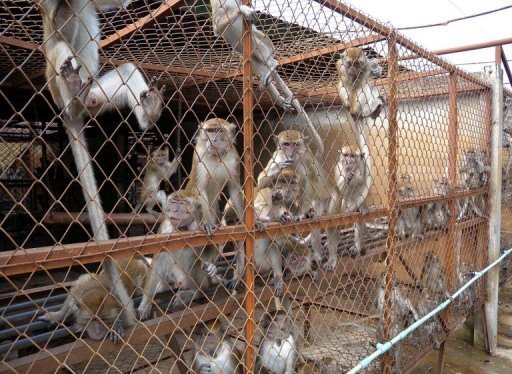In recent years, an unexpected and somewhat controversial industry has been gaining traction worldwide—monkey farming. Once considered a niche and unusual practice, it is now attracting attention for various reasons, including its potential profitability, scientific applications, and ethical concerns. But why are people turning to monkey farming, and what does this industry really entail? Let’s take a closer look.
What is Monkey Farming?
Monkey farming refers to the breeding and raising of monkeys for commercial purposes. This can include supplying them to research institutions, zoos, exotic pet markets, and in some cases, for conservation efforts. While traditionally, the practice has been limited to a few countries with established primate research centers, there is now a noticeable rise in new farms across different regions, particularly in Asia, Africa, and South America.
The Growing Demand for Monkeys
One of the biggest reasons behind the increasing interest in monkey farming is the rising demand for primates in various industries.
1. Medical and Scientific Research
Monkeys, especially species like macaques, play a significant role in medical research. They are used in studies related to neuroscience, infectious diseases, and vaccine development. The COVID-19 pandemic highlighted this demand when research labs required large numbers of monkeys for vaccine testing. Many countries faced shortages, leading to an increased interest in breeding monkeys domestically rather than relying on imports.
2. The Exotic Pet Trade
Owning exotic animals, including monkeys, has become a status symbol for some individuals, particularly in affluent communities. Social media influencers showcasing their pet monkeys have fueled this trend, leading to a spike in demand. However, owning a monkey Farming as a pet comes with ethical and legal concerns, as they are wild animals requiring specialized care and socialization.
3. Conservation and Tourism
Some monkey farms claim to operate under conservation initiatives, breeding endangered species for reintroduction into the wild. Others use these animals in tourism-driven businesses, such as monkey parks and wildlife sanctuaries, where visitors can interact with them. While some conservation projects have genuine intentions, critics argue that many of these facilities prioritize profit over the well-being of the animals.
The Business of Monkey Farming
Monkey farming has become a lucrative industry for those who venture into it. Depending on the species, a single monkey can sell for thousands of dollars.
- Breeding farms: These establishments focus on raising baby monkeys for sale. Certain species, such as capuchins and macaques, are particularly popular.
- Training facilities: Some farms train monkeys for various purposes, including assistance animals for people with disabilities, performers for entertainment, and even labor in coconut harvesting.
- Export businesses: Many countries still trade monkeys internationally, supplying them for research, zoos, and private collectors.
Despite the economic appeal, monkey farming comes with substantial operational costs, including food, medical care, and secure enclosures. Additionally, obtaining permits and adhering to wildlife laws can be complex, as regulations differ by country.
Ethical and Environmental Concerns
The rapid growth of monkey farming has raised numerous ethical and environmental concerns. Animal rights activists argue that breeding monkeys for commercial purposes is cruel and exploitative.

also read – Is Pi Network the Future of Crypto? What You Need to Know!
- Welfare issues: Monkeys are intelligent and social creatures. When kept in captivity, they often suffer from stress, behavioral issues, and poor mental health due to isolation or inadequate living conditions.
- Risk of disease transmission: Close contact between humans and primates can increase the risk of zoonotic diseases, which are infections that can spread from animals to humans. Some experts fear that large-scale monkey farms could become breeding grounds for future outbreaks.
- Impact on wild populations: While some farms claim to help conservation, others engage in illegal wildlife trafficking. Unscrupulous operators capture wild monkeys to sell or breed them, leading to population declines in certain regions.
Legal Status and Regulations
Monkey farming is subject to varying regulations depending on the country. In the United States and much of Europe, the breeding and sale of monkeys are heavily regulated, with strict requirements for permits and ethical treatment. However, in some parts of Asia and South America, the industry operates with minimal oversight.
Organizations like the Convention on International Trade in Endangered Species of Wild Fauna and Flora (CITES) monitor the global trade of primates, aiming to prevent illegal trafficking. However, enforcement remains challenging, and black-market operations continue to thrive.
The Future of Monkey Farming
The future of monkey farming remains uncertain. While the demand for primates in research and pet markets is unlikely to disappear anytime soon, increasing awareness of ethical concerns could lead to tighter regulations and changes in industry practices.
- Alternatives to animal testing: Scientists are exploring alternative research methods, such as computer modeling and lab-grown human cells, to reduce reliance on animal testing. If these technologies advance, the need for lab monkeys may decrease over time.
- Stronger animal welfare laws: Governments and advocacy groups are pushing for stricter regulations to ensure humane treatment of farmed monkey Farming. More countries could ban or limit the trade of primates.
- Changing public attitudes: As more people become aware of the complexities and ethical dilemmas associated with monkey farming, public opinion may shift against it, reducing consumer demand.
Conclusion
Monkey farming is a booming yet controversial industry driven by demand from research institutions, pet owners, and tourism businesses. While it presents financial opportunities, it also raises serious ethical and environmental concerns. As global awareness grows, the future of this industry may depend on striking a balance between human needs and animal welfare. Whether monkey farming continues to expand or faces heavy restrictions remains to be seen, but one thing is certain—this is an industry that will continue to spark debate worldwide.






